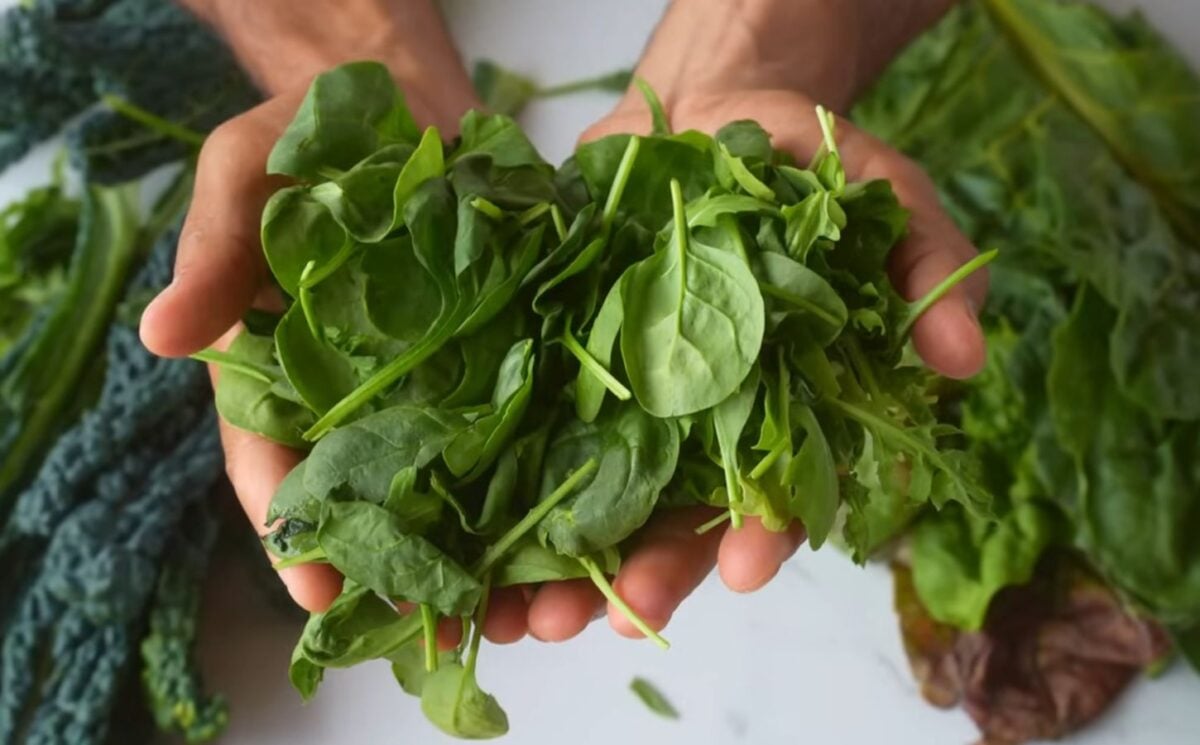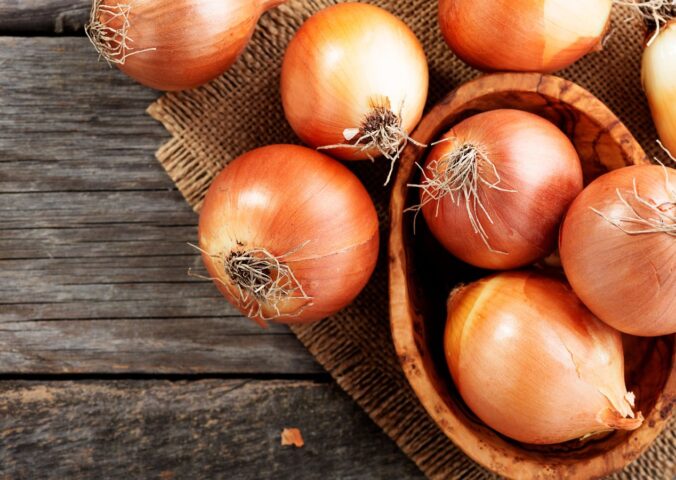Certain foods are linked with significant potential health benefits, especially when it comes to tackling inflammation. Furthermore, some of the most effective foods for fighting inflammation can also help to counter fatigue, pain, and even reduce the overall risk of disease.
Dr Rupy Aujla, NHS doctor and founder of the Doctor’s Kitchen, argues that what we put on our plates is one of the best tools we have to slow aging, support brain health, and protect against illness.
Read more: The 9 Healthiest Fruits, According To Nutritionists
Dr Rupy, known for his YouTube channel The Doctor’s Kitchen, recently shared a video where he lists 10 anti-inflammatory foods and explores their benefits, and they all happen to be plant-based. He stresses that these foods can help lower inflammation markers in the body, improve energy, and support long-term health.
Berries for heart and blood vessel health
A daily cup or two of berries can make a big difference, and even a handful of berries a day can “fight inflammation more than most supplements,” Dr Rupy claims. Rich in anthocyanins, berries like blackcurrants, blackberries, blueberries, and raspberries support healthy cholesterol and blood vessels while reducing heart disease risk. Mixing different varieties gives a wider range of protective compounds. Frozen or freeze-dried options work just as well for smoothies, oats, or vegan yogurt bowls.
Greens for longevity and brain health
Dark leafy greens (the darker the better) such as kale, spinach, and chard act like “nature’s multivitamin,” says Dr Rupy. “They give you fiber, folate, vitamin K, and vitamin C”. As well as “carotenoids like lutein,” which help shield cells from oxidative stress. Studies link one daily serving to slower cognitive decline – the equivalent of being more than a decade younger. He suggests rotating raw and cooked greens to get the most out of them and notes that every culture has its own staple green, from collards in East Africa to wild quelites in Mexico.
Sprouts with 50 times more compounds

Sprouts may be small, but they’re nutrient powerhouses. Broccoli sprouts, in particular, release sulforaphane, which activates detoxification pathways and reduces oxidative stress. “Sprouts are completely underrated,” Dr Rupy says. He points to a trial showing that eating 30 grams of raw broccoli sprouts daily for 10 weeks cut inflammatory markers by up to 59 percent. Growing them at home is simple – just soak seeds, rinse twice daily, and they’re ready within a week.
Extra virgin olive oil as a liquid anti-inflammatory
Olive oil is a cornerstone of the Mediterranean diet for good reason. Its polyphenols, such as oleocanthal, act on the same pathways as ibuprofen, though more gently. Dr Rupy notes that just “a drizzle around seven grams a day was linked to a 28 percent lower risk of dying from dementia-related causes”. He emphasizes buying cold-pressed, dark-glass bottled oil with a fresh harvest date. A peppery kick at the back of the throat is the sign of high polyphenol content. And contrary to popular belief, you can cook with olive oil; its compounds actually protect it from the heat damage that can make some other foods harmful.
Nuts to protect your heart
Despite their calorie density, nuts are “nutrient-dense powerhouse ingredients that you should not be scared of,” says Dr Rupy. Just a handful per day can lower cholesterol and reduce heart disease risk by nearly 20 percent. Walnuts, pecans, almonds, and even chestnuts stand out for their polyphenol content. He recommends keeping a jar of unsalted mixed nuts on the counter for easy snacking or sprinkling over salads and oats.
Seeds for omega-3s and plant power
Seeds offer protein, fiber, and a host of unique compounds. Flax seeds contain SDG lignans with strong anti-inflammatory effects; sesame seeds provide sesamin for vascular health; sunflower seeds are affordable and rich in vitamin E and linoleic acid. “Even one or two tablespoons a day shows anti-inflammatory benefits,” Dr Rupy explains. He prefers ground flax for better absorption and recommends keeping pre-milled versions in the fridge to protect their nutrients.
Legumes to feed gut microbes
Beans and lentils don’t just steady blood sugar; they also nourish the gut microbiome. These microbes produce short-chain fatty acids that strengthen the gut barrier and lower inflammation. Packed with fiber and polyphenols, legumes act as daily anti-inflammatories. Dr Rupy highlights that eating about 400 grams of cooked legumes per week, or three to four tablespoons a day, is enough. For beginners, he advises starting small to let your gut adapt, then working them into salads, soups, and pasta sauces.
Inflammation may be part of life, but it doesn’t have to dictate our health span. Dr Rupy’s message suggests that food can help deal with inflammation, particularly a daily mix of berries, greens, sprouts, healthy fats, nuts, seeds, and legumes.
You can find the original video on Dr Rupy’s YouTube channel, The Doctor’s Kitchen.






